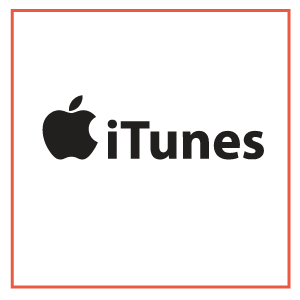Episode 27: Website Company Brisbane
Starting a New Website? - Learn more about Web Design Brisbane here
ALSO LISTEN ON
READ THE TRANSCRIPT OF EPISODE 27 BELOW
[00:00:00] Saul: Hi everybody. Welcome to the Web Design Brisbane Podcast. This is episode number 27, and today's episode is entitled Website Company Brisbane. My name is Saul Edmonds, and as usual, I'm joined by the lovely Gillian Smith.
[00:00:12] Gillian: Good morning, Saul. It's a little bit rainy today.
[00:00:14] Saul: Oh, yes, it's very rainy. We are the co-founders and creative directors Roundhouse the creative agency, a local business with a passion for helping our clients grow. Over to you, Gil.
[00:00:23] Gillian: Okay, thanks, Saul. Well, today we'll talk about what things you need to do when choosing a website company to work with in 2019. Now, our goal is to help small business owners’ start-ups and entrepreneurs in the city of Brisbane, Australia, take their opportunities to the next level with brilliant website design, if you're from another location, or city, welcome. Thanks for joining us today, and we hope we can help you grow your business in the online space.
[00:00:52] Saul: Great. What today's topics, Gil?
[00:00:54] Gillian: Well, today, we're going to give a little bit of advice around choosing the right website company to help businesses make their professional goals. Now we know that today, a website plays a crucial role in the success of any business. And it's important that you take the time to choose the right web design company to build your business and grow your clientele. But when you're starting out with that process, you need to know what to look for, you need to ask the right questions. So today, we've got you covered with a simple guide to choosing the right website design company with the top 10 things that you need to know before you get started.
[00:01:33] Saul: So let's get started. These are the 10 commandments. So we say sounds pretty serious. 10 commandments of when working with a new website company so what have we got? Our first one is, know your budget.
[00:01:48] Gillian: You have to know how much you want to spend?
[00:01:50] Saul: Yeah, that's right. Why is knowing your budget important? Well, let's just sort of side to that might just be around as well as the doesn't have to be a specific number. But knowing your budget, and setting that implies for any company that you're going to engage is really important for you, and for them as well, in that it saves everyone a bit of time, it comes to the point where you're working out the scope of your project, and your Skype and your scope might be a lot greater than what you are able to spend but you don't know that yet.
[00:02:34] Gillian: It's a discovery process.
[00:02:35] Saul: Yeah, especially the more complicated the side, and the more features it has, and there's a lot of unknowns, knowing that at the start, helps to work to come to help the company to work out what they need to do to either help you achieve that in another way, or whatever that might be.
[00:02:57] Gillian: Okay, well, number two of a top 10 things to ask a website company before you get started is you must obtain fixed price quote.
[00:03:07] Saul: Yeah, so a fixed price quote is great for a range of different reasons. One is that then everybody before you start the project knows exactly what's involved, and what you'll be paying for that and what stages and there's peace of mind, but having a fixed price quiet also means one very important thing, that you've got a clear scope, and that's also good for the same reasons that everyone then knows what the guy to be doing, what roles people have, including the client, what has to be provided by home, and when so everything runs smoothly, and overall, there's a great process.
[00:03:48] Gillian: Okay, we'll run to number three now so you need to know about any additional fees and charges that will be applicable and a key one here is website hosting.
[00:03:58] Saul: Yeah, that's right yearly web hosting. Some people might charge monthly, but usually there's yearly website hosting that is recurring for the website. There's also things like security certificates or SSL certificate to make your site secure. That's our requirement for all sorts these days, not only ecommerce sites, and then sometimes you might have depending on the project scope, as well, you might have a retainer for the company that you engage to do ongoing work that might be related to content, or otherwise on the website, plus any marketing and E-online marketing or AdWords or anything else. But that's another story.
[00:04:43] Gillian: Okay. Well, number four. Tip is you need to look at the website companies past work, you need to get to know their portfolio.
[00:04:51] Saul: Yeah, that's right. It's great. That's obviously one of the main things you can look at to gauge the type of previous work done. But it's great also to ask questions about what people specific projects in their portfolio. Why they did things a certain way but story was have a little bit of history with what they have, and to open up the conversation because you get a good understanding of their process that way, too.
[00:05:23] Gillian: It's not just looking at the visuals, it's also looking at the types of systems content management systems that they use, but also the clientele that they've worked with.
[00:05:32] Saul: Yeah, exactly.
[00:05:33] Gillian: Okay, well, this is a really important one. Number five, you need to know if the website company will design and develop the site. Why is that important, Saul?
[00:05:43] Saul: Okay, well, for a lot of people, they won't even know if it's their first site. That's a really good question to us, too, because most people might just assume, well, you make a site, like, what's the difference between those two things, but there's a lot of agencies who will be doing one and then they'll hand over the other one to the other company...
[00:06:08] Gillian: So I start with the web design, and then they'll hand it over to a separate web developer.
[00:06:12] Saul: Yeah, and that's fine. If the process works well and smooth, and everyone works together and has really good communication, which is key, then the process is good but often what can happen is there's things lost in translation, people don't communicate, well, sometimes the management of that can be left up to the client, which, or at least part of it, so anything that's going to lead to a potential bad result or problems isn't great so having the two things in house generally makes things smoother for everyone.
[00:06:50] Gillian: Okay, on to number six. Now, you need to know, if you'll be able to easily update the website yourself.
[00:06:57] Saul: That's right. And that's your that's within your content management system. Most sites these days are built using a content management system that helps you to do all the work within it but then it also lets you after the fact as a client, edit the site yourself if you wish to. And what's next, Gil?
[00:07:21] Gillian: Okay, well, next is number seven, and it's about website training so you need to find out if you get website training when you need it.
[00:07:30] Saul: Okay, so what we do is we provide web training at the end of the project. So you could do the previous point number six, about updating it yourself. Now most people don't, especially if you're brand new to it, you'll probably need some additional training, or ongoing help just with little things as needed. We provide free training, after the projects of people feel at least a little bit empowered to start to use it, and then the ongoing assistance, as well.
[00:08:08] Gillian: Okay, well, that brings us to number eight, where you need to know about ongoing support, and web maintenance on your site.
[00:08:15] Saul: Yeah, ongoing support and web maintenance is something that most people don't really think about and really, to be honest, most websites don't necessarily need a lot of web maintenance.
[00:08:30] Gillian: What does web maintenance include?
[00:08:32] Saul: Okay, it's, depending on the content management system that can include things like updating plugins, or when there's a system update, making sure that things aren't going to impact in some way if there's some big change, and if there is to advise the client of what that is, as well, but ongoing support generally, and can also just mean something very simple, which is that you just actually going to be there to answer the call, if the client has something, some issue, or they just want to talk to you, as well, about anything relating to the side..
[00:09:07] Gillian: the website (inaudible)
[00:09:08] Saul: No, that's all right. Well, it is for a lot of people, but it should be and this is where good support is really crucial. I think for longevity, and a really good relationship where a client can have somebody that can just turn to at any point for support for any type of support.
[00:09:32} Gillian: Well, that brings us to number nine, and this is a really important one, for your overall website project, which is you need to set concrete goals, and they need to be achievable.
[00:09:43] Saul: Yeah, these goals just tie in really well with the scope of the project. So knowing that first, you have to know what you're going to achieve, you have to know your target before then you can set your concrete and achievable goals, right. So you said as to what who's responsible for what, lay it all out, have a nice, clear, simple plan for it, and then set when those things will be achievable. These things become probably even more important, the bigger the project, and the longer period. It goes in order to manage and make sure things are still on track for different milestones.
[00:10:31] Gillian: Okay, well, that brings us to number 10, our last tip, when interviewing and considering working with a website company, and this is a really important one, which is you need to know the project deadline, when will your website go live?
[00:10:47] Saul: Yeah, of course, everyone wants to know that, and sometimes that is one of the first things depending on the type of store, if it's an e commerce store, and somebody has gone particular start that they need to have it live by, because they're starting campaigns, and they've got a whole host of things that are relying on that, then that's probably one of the first things they'll talk about. For some people, it's not as big a deal, and then it's just knowing it's going to roughly take this many weeks in order to do it, and it's going to be live on this date, and if it's stretched out or it's going to be shorter, either way, just keeping people up to date as to what that actually is.
[00:11:34] Gillian: So you always want done whatever your website in a timely and professional way.
[00:11:38] Saul: Yeah. And once again, it goes back to good communication, right. Okay, so that's it for today, guys, thank you so much for listening. Again, before we go, please don't forget to rate review and subscribe to this podcast would love to hear your feedback. Also, if you'd like to read the transcript of this episode, please visit our website at roundhouse.cc/web-design. We're on a journey to help local Brisbane businesses grow their opportunities online and exceed their goals. Thanks for listening and we'll see you tomorrow. Bye, guys.








